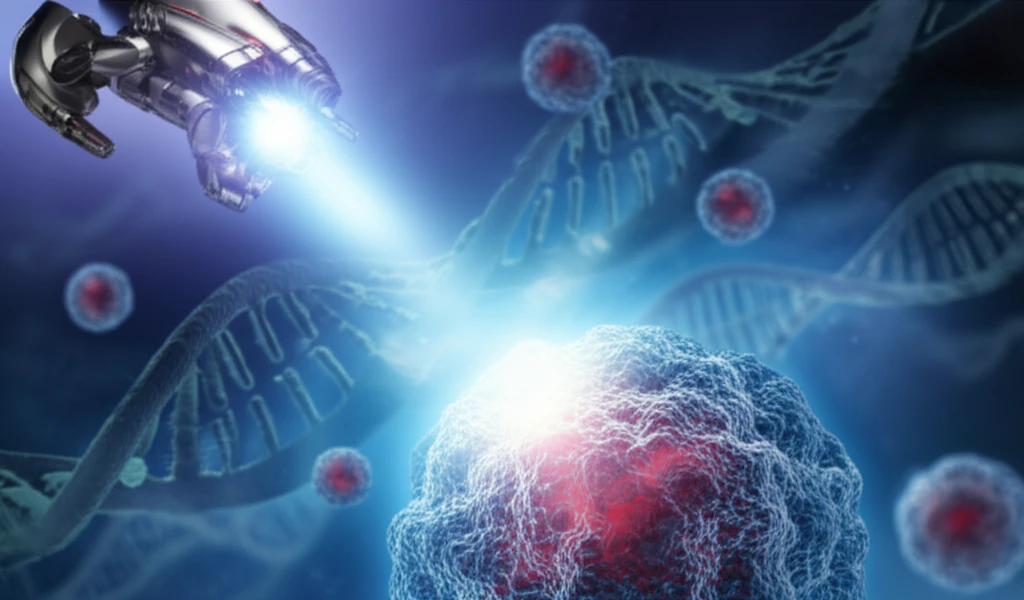
Cancer's Achilles Heel: How a Tiny Enzyme Could Revolutionize Treatment
"Scientists Discover Key to Boosting Chemotherapy's Power, Offering New Hope for Patients."
The fight against cancer is a relentless battle, with researchers constantly seeking new strategies to outsmart this formidable foe. For years, chemotherapy has been a cornerstone of cancer treatment, but its effectiveness is often limited by the cancer cells' ability to resist its effects. Now, a team of scientists has uncovered a critical piece of the puzzle, revealing how to make chemotherapy work better, offering a beacon of hope for countless patients.
This exciting breakthrough centers on an enzyme called Wee1, a key player in the intricate cellular processes that govern cell growth and division. By targeting Wee1, researchers have found a way to disrupt cancer cells' defenses, making them more vulnerable to the power of chemotherapy. This discovery not only sheds light on the mechanisms of cancer resistance but also paves the way for more effective and personalized treatment approaches.
This article dives deep into the science behind this revolutionary finding, exploring the role of Wee1, the impact of targeting it, and the potential implications for the future of cancer care. We'll examine the research, the scientists involved, and the promise this discovery holds for improving the lives of those affected by this devastating disease.
Unveiling Wee1: The Cellular Gatekeeper of Cancer's Defenses

To understand the significance of this discovery, we must first delve into the role of Wee1. This enzyme acts as a 'gatekeeper' within the cell, controlling the cell cycle – the series of events that lead to cell growth and division. Cancer cells, unfortunately, often have dysregulated cell cycles, allowing them to grow and spread uncontrollably. Wee1 plays a crucial role in this process by ensuring that cells don't divide until they are ready, and have properly duplicated their DNA. It acts like a brake, slowing down the cell cycle when necessary to allow for DNA repair.
- Wee1's Role: Acts as a brake, ensuring cells with damaged DNA don't divide.
- Cancer's Strategy: Cancer cells often use Wee1 to resist chemotherapy, allowing DNA repair.
- The Breakthrough: Researchers found a way to target Wee1, making cancer cells more vulnerable.
A New Era in Cancer Care: Hope for the Future
The discovery of Wee1's role in cancer's resistance to chemotherapy represents a significant step forward in the fight against this disease. By targeting this critical enzyme, researchers have opened a new avenue for more effective treatments, potentially transforming the lives of countless patients. While more research and clinical trials are needed, this breakthrough offers a promising glimpse into a future where cancer treatment is more targeted, personalized, and successful. It's a future where hope is not just a word, but a powerful weapon in the battle against cancer.
